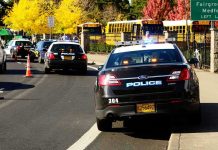
Two lives ended during a Mississippi homecoming celebration—a stark reminder that even our most cherished traditions can turn tragic in a heartbeat, raising questions about safety, community, and the invisible tensions beneath small-town festivities.
Story Snapshot
- Two people killed in a shooting during a school’s homecoming weekend in a small Mississippi town
- Law enforcement launches investigation amid community shock and mourning
- The incident exposes vulnerabilities in local event security and communal trust
- National debate reignites over school safety and gun violence in rural America
Homecoming Haunted: A Night That Changed a Town
Homecoming weekend usually means nostalgia, laughter, and the shared warmth of a tightly-knit community. In Mississippi, it’s more than a football game; it’s an annual rite, a reunion of generations. Yet for one small town, this year’s celebration shifted from cheers to chaos, when gunfire shattered the night and left two people dead. The sense of safety that once cloaked the campus evaporated, replaced by panic and disbelief—a stark contrast to the previous hours of pageantry and pride.
Early reports point to the shooting erupting in a parking area adjacent to the main event, after an argument escalated beyond control. Witnesses describe a sudden stampede of students and families, fleeing bleachers and concession stands for cover. Police arrived within minutes, but by then, the damage was done. The victims—locals with ties to the school—were pronounced dead at the scene, their identities withheld as the community braced for the inevitable grief and speculation.
Community Grief Meets Unsettling Questions
Shock waves rippled outward from the campus, reaching every corner diner and church pew. Residents accustomed to waving at neighbors now find themselves locking doors and exchanging worried glances. As details emerge, a familiar cycle unfolds: prayer vigils, statements of condolence, promises of support. But beneath the public mourning lies a current of doubt—how could this happen here, in a place where nearly everyone knows each other by name?
Law enforcement faces mounting pressure to deliver answers. Was the violence premeditated or the result of spontaneous rage? Did security measures fail, or was the threat simply unforeseeable? Parents demand accountability, and school officials scramble to reassure families that their children are safe. The investigation, still in its early stages, has yet to yield suspects or a clear motive, leaving the town suspended between anxiety and hope for closure.
At least 4 dead, 12 injured after overnight mass shooting in Leland, Mississippi, reports say.#Mississippi #Leland #Shooting #MassShooting #Breaking #Alert #Shooter pic.twitter.com/xX6sz3k9KN
— Europe Cognizant (@EuropeCognizant) October 11, 2025
Security, Responsibility, and the Rural Reality
Events like this are rare in small-town America, but their impact lingers long after the news crews leave. Community leaders now confront uncomfortable realities: limited police resources, the challenge of monitoring large crowds, and the pervasive presence of firearms in everyday life. Some residents advocate for tighter security at school events, while others warn against turning cherished traditions into fortress-like gatherings. The debate exposes divisions over personal freedom, collective responsibility, and the boundaries of community trust.
Nationally, the shooting reignites perennial conversations about school safety and gun violence. Lawmakers and advocacy groups seize on the tragedy to promote familiar agendas, but locals resist becoming a symbol for distant policy debates. Their focus remains on healing, supporting the victims’ families, and restoring a shaken sense of normalcy—if such a thing can ever return.
The Fragile Thread of Tradition
As the investigation continues, the town faces decisions that will shape its future. Should homecoming weekend proceed next year, or would that dishonor the memory of those lost? Can new security protocols preserve both safety and the spirit of community? The answers are elusive, and the wounds—both physical and psychological—will take time to heal.
Yet amid the sorrow, some residents see an opportunity to reconnect and reinforce the values that define their town: neighborliness, vigilance, and resilience. The tragedy serves as a sobering reminder that even the most familiar rituals can be upended by unforeseeable violence. But it also compels a reevaluation of what it means to come together—not just in celebration, but in the face of loss.









